In the past six years, the name “Nnamdi Kanu” rings not just one but several bells in the minds of those in power and the public — particularly those in the south-east. Kanu, founder of the proscribed Indigenous People of Biafra (IPOB), has sustained his presence in the news through agitation and criticism against the Nigerian government.
Less than a year after he began an obscure Radio Biafra in 2014, Kanu became the face of the biggest secessionist movement in the country since the Nigerian Civil War.
The civil war was between the Nigerian government and the Republic of Biafra led by the late Odumegwu Ojukwu who declared the then eastern region an independent state.
The bloodletting, hunger and widespread displacement of people in the south-east happened between May 1967 and January 1970.
Advertisement
More than 50 years after the civil war, Kanu began the struggle to achieve what Ojukwu could not accomplish.
The IPOB leader, who was under trial for treasonable felony, jumped bail and fled the country after soldiers attacked his residence in Umuahia, Abia state, in 2017.
But on Tuesday, Abubakar Malami, minister of justice, announced Kanu’s arrest and extradition to Nigeria after years of hide and seek.
Advertisement
Kanu returned to Nigeria — a country he referred to as a “zoo” — not as a triumphant secessionist leader, but as a “fugitive” of the law.
ARREST, COURT JUDGMENT AND KANU’S JOURNEY TO KUJE PRISON

In October 2015, operatives of the Department of State Services (DSS) arrested Kanu in a hotel in Lagos.
Advertisement
Later that year, several courts ordered the release of the IPOB leader, but the DSS failed to comply.
Instead, the security agency filed a five-count charge of treasonable felony against him.
In 2016, three courts ruled that Kanu be remanded in Kuje prison, citing threats to national security.
On April 25, 2017 — after spending 18 months in Kuje prison — the federal high court in Abuja granted Kanu bail on health grounds.
Advertisement
Kanu was released after perfecting his bail conditions, which included providing three sureties — one of whom must be a serving senator; the second, a Jewish leader, and the third, a highly respected Nigerian.
Enyinnaya Abaribe, senator representing Abia south, was one of those who stood as a surety for Kanu.
Advertisement
The bail also came with a caveat — that Kanu must not grant media interviews and must not be seen in a crowd of more than 10 people. But to what extent did he comply?
KANU’S ESCAPE FROM NIGERIA
Advertisement
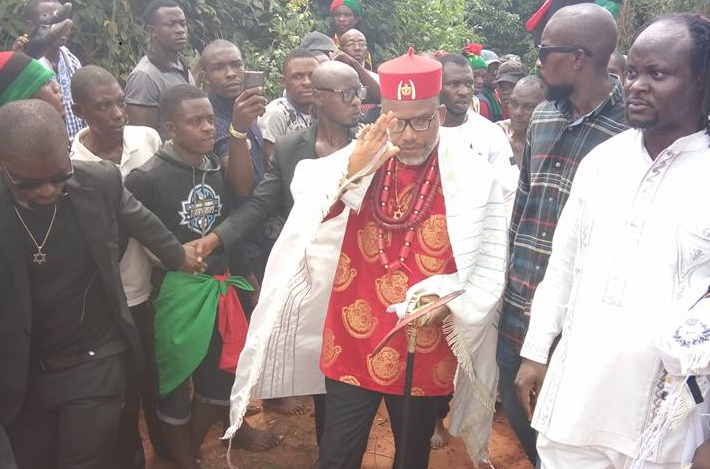
Despite the conditions of his bail, Kanu flouted the terms at least three times within a few weeks of his release.
Advertisement
When asked, during an interview, if speaking to the media could get him into trouble, the IPOB leader said: “I don’t care.”
“It’s like asking me not to breathe. I can’t go outside to call for a press conference. I can’t go on Biafra Radio to broadcast. I can’t allow large groups of people to basically congregate outside to see me.”
Owing to Kanu’s violation of his bail conditions, Labaran Maku, the federal government’s counsel, demanded that his bail be revoked.
Binta Nyako, the judge who granted him bail, revoked it and ordered that he should be arrested.
Kanu threatened death against anyone who attempts to arrest him, saying “any person who comes to arrest Nnamdi Kanu in Biafra land will die here”.
Amid several protests in his defence, the Nigerian Army announced the launch of the “operation Python”, which it said was to curb the “violent agitations by secessionist groups amongst other crimes that have recently bedevilled the south-east region”.
In September, 2017, the army’s ‘python’ danced to the doorsteps of the IPOB leader’s family home in Afarakwu, Abia state and some witnesses claimed soldiers surrounded the house after arriving in the town.
At the time, there was the speculation that Kanu was killed during the operation. Emmanuel, Kanu’s younger brother, said he believed his brother fell into the hands of the troops.
But about a year after the incident, Kanu resurfaced and narrated how he was “smuggled out” of the country by relatives.
Despite the court’s insistence on his appearance, the IPOB leader remained abroad, and said he jumped bail to pursue the cause of Biafra.
“Their problem is Nnamdi Kanu and the solution to their problem is referendum. They gave me conditional bail to cage me and IPOB but I refused,” he had said in a broadcast.
THE BIAFRA STRUGGLE AND CONTROVERSIES
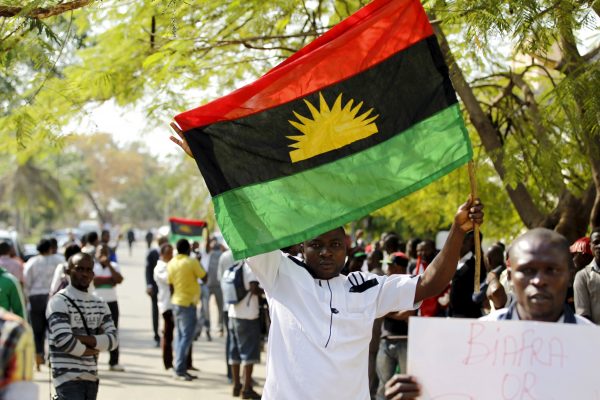
Amid IPOB protests, south-east governors proscribed the group. IPOB was later declared a terrorist group by the court.
But this did not deter Kanu, who continued to promote the secessionist movement. His approach, however, resulted in controversies that discredited the group in some quarters.
Asari Dokubo, leader of the Niger Delta Peoples Salvation Force (NDPSF), accused Kanu of turning the Biafran struggle into a business following a controversial N20 million gift.
Both activists have been at loggerheads over the quest for Biafra.
“Biafra is your business now, you have no other avenue for gainful income. It is a pity how Igbo people have fallen for this evil, but your time is up,” Dokubo had said in a video.
“Nnamdi Kanu, I’m not in your category but for this, I will surely bring you down. I will destroy this evil empire that is working as a hindrance to the restoration of Biafra.”
A report from Foreign Lobby said Kanu signed a contract with BW Global Group, an American lobbying firm, to help promote IPOB in a bid to achieve the secession objective of Biafra.
The one-year deal is said to have taken effect from March 1, 2021, and cost Kanu and IPOB $750,000.
“BWGG shall provide IPOB with services relating to the promotion of human rights and democracy, and shall otherwise act as an advocate for the indigenous people of Biafra,” a document relating to the contract said.
In September, 2019, Kanu reportedly signed an $85,000-per-month deal ($1 million/year) with Mercury Public Affairs, another US-based lobbying firm.
The sources of the funding for these deals remain unknown.
Kanu also reportedly formed an alliance with the Ambazonia Governing Council (AGovV), the separatist movement in Southern Cameroon, to exchange weapons and personnel.
The separatist group also established a security outfit named Eastern Security Network (ESN) to “halt every criminal activity and the terrorist attack on Biafraland”.
The emergence of ESN resulted in a spike in attacks against security and government infrastructure in the south-east.
TheCable found out that killings in the south-east tripled after the security outfit was launched — but the group denies any wrongdoing.
UNFINISHED BUSINESS WITH THE NIGERIAN GOVERNMENT
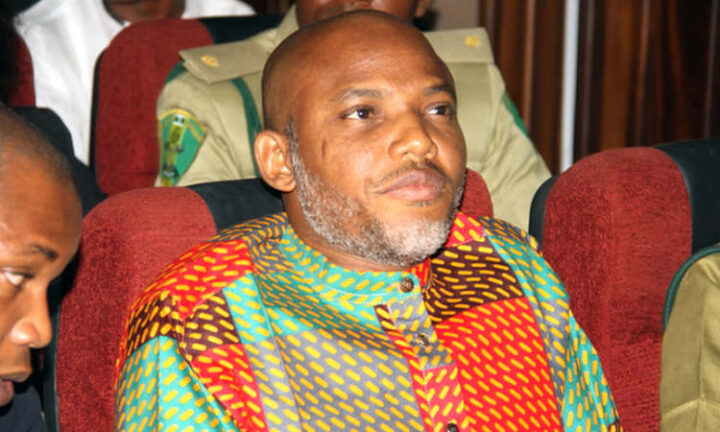
With Kanu’s extradition to Nigeria, he is set to complete his “unfinished business” with the Nigerian government.
On Tuesday, the IPOB leader was re-arraigned before a federal high court in Abuja for charges bordering on treason.
Kanu informed the court that he might have been killed if he did not leave Nigeria.
Binta Nyako, the judge, remanded Kanu in DSS custody until July 26 for the continuation of trial.
WILL KANU’S ARREST RETURN PEACE TO THE SOUTH-EAST?
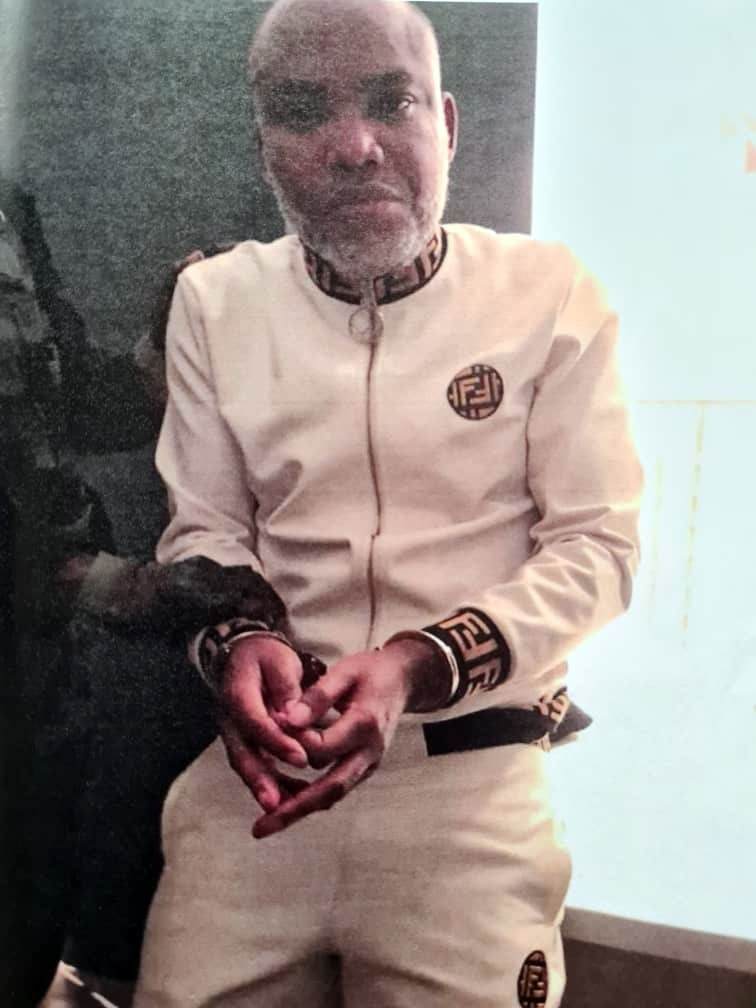
Before Kanu’s arrest, the south-east had been ravaged by attacks on citizens and government facilities.
Police stations, courts, and buildings of government agencies have been razed. Security agencies blamed IPOB’s ESN for the attacks.
Reacting to Kanu’s arrest, Ohanaeze Ndigbo Worldwide, Igbo sociocultural association, said the arrest of the IPOB leader, will avert another civil war and bring peace to the south-east.
The group is different from Ohanaeze Ndigbo which is led by George Obiozor.
In a statement by Okechukwu Isiguzoro, its secretary-general, the group said Kanu’s refusal to listen to Igbo leaders’ advice led him to his present predicament.
It described Kanu’s arrest as “the beginning of the end of violent agitations in southeastern Nigeria”.
“We don’t think that any Igbo leader will stick out his/her neck for him, his re-arrest will eventually bring peace and stability to the region and averted another civil war that was raging on,” the statement said.
But this statement is in opposition to IPOB’s position which is to remain committed to the Biafran struggle despite Kanu’s arrest.
“IPOB will not relent in the pursuit of Biafra freedom. We have crossed the Rubicon in our struggle for the restoration of Biafran Sovereignty. There is no going back no matter the level of intimidation by our oppressors,” Emma Powerful, the group’s spokesman, said.
1 comments
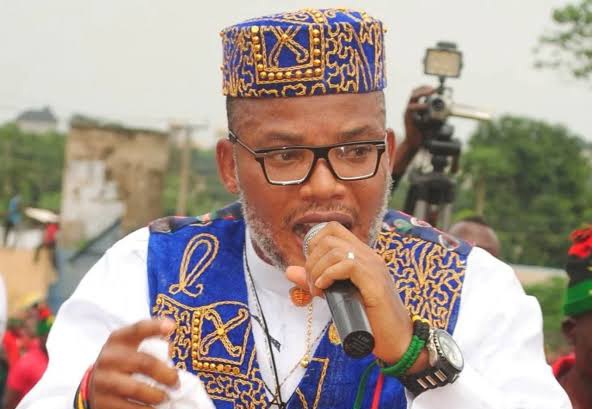
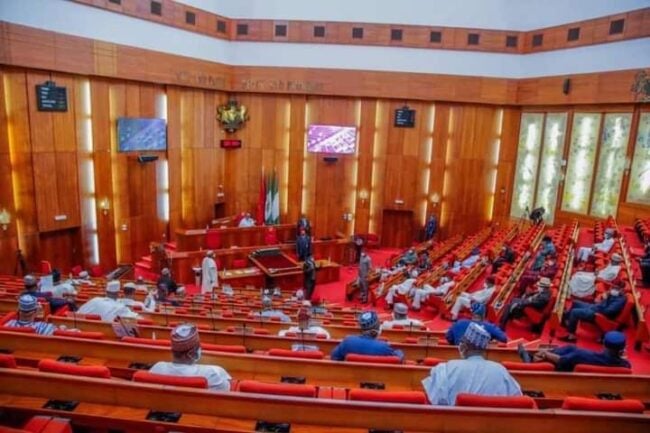
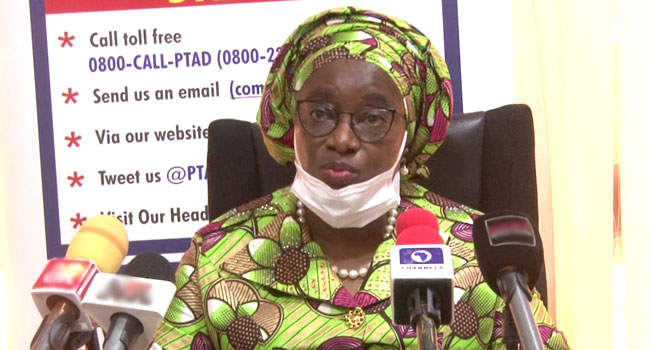
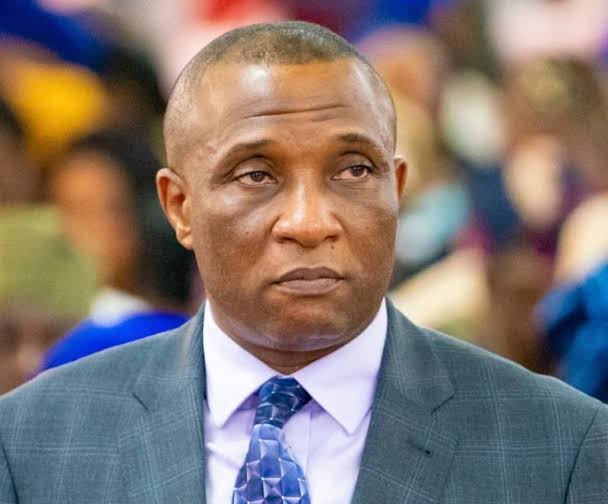
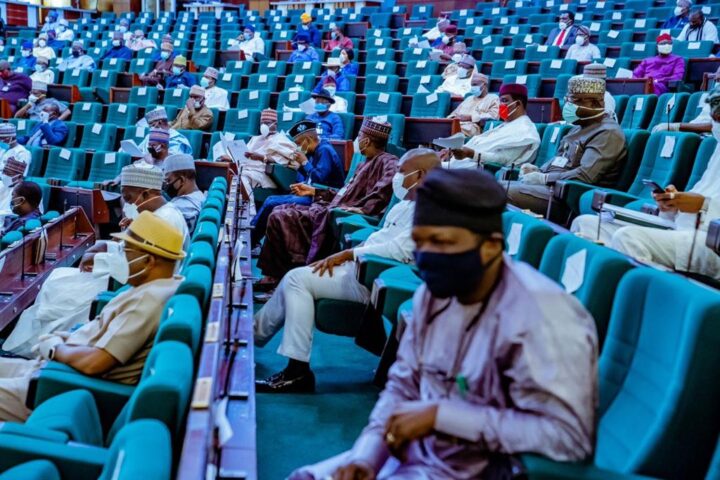
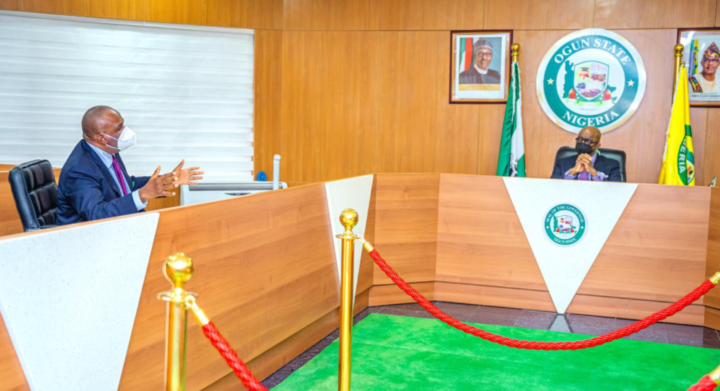
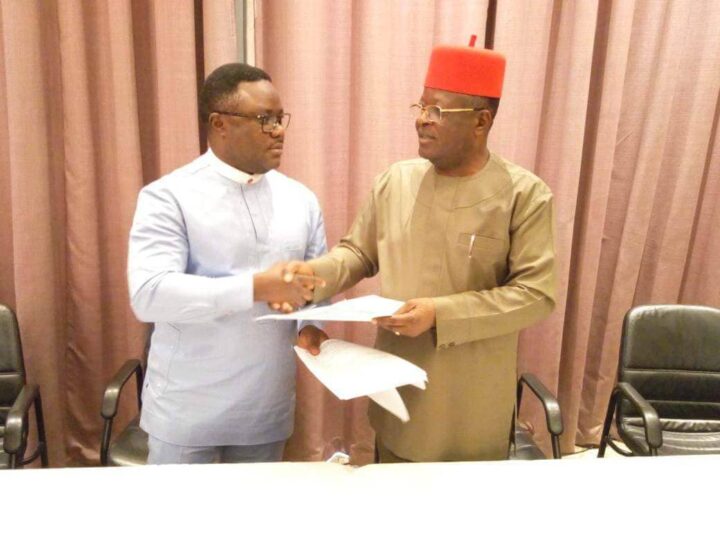
terrorist nnamdi kanu has fallen from grace to grass, where is emma powerful , he should joined with his extreemist leader in jail , violence begets violence and will never benefits any body except the heads it feeds